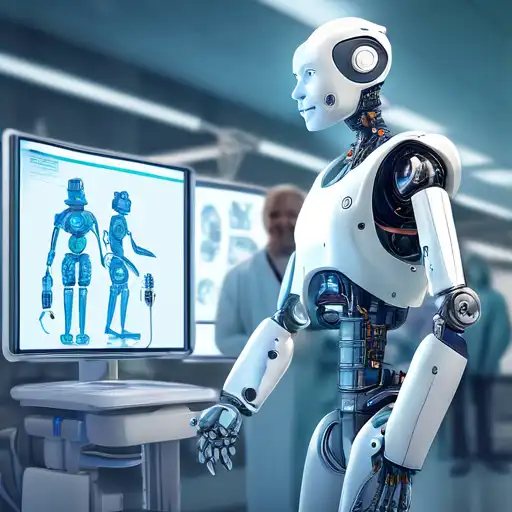The Dawn of Robotics in Healthcare
In recent years, the integration of robotics into healthcare has marked a revolutionary shift in how medical services are delivered. From surgical robots to robotic prosthetics, the potential to enhance patient care and improve outcomes is immense. This article explores the transformative role of robotics in healthcare, highlighting key innovations and their benefits.
Revolutionizing Surgery with Robotics
One of the most significant advancements in healthcare robotics is in the field of surgery. Robotic surgical systems, such as the Da Vinci Surgical System, allow surgeons to perform complex procedures with greater precision, flexibility, and control than conventional techniques. These systems reduce patient recovery time, minimize surgical scars, and lower the risk of complications.
Enhancing Rehabilitation with Robotic Prosthetics
Robotic prosthetics are another area where technology is making a profound impact. These advanced devices are designed to mimic the movement of natural limbs, offering amputees a new level of mobility and independence. With sensors and AI, modern prosthetics can adapt to the user's movements, providing a more natural and intuitive experience.
Automating Pharmacy Operations
Robotics is also transforming pharmacy operations, automating the dispensing of medications to reduce errors and increase efficiency. Automated systems can accurately fill prescriptions, manage inventory, and even compound medications, freeing up pharmacists to focus on patient care.
Improving Patient Care with Robotic Assistance
Robotic assistants are being deployed in hospitals and care facilities to support both patients and healthcare workers. From delivering supplies to providing companionship for the elderly, these robots are enhancing the quality of care while reducing the workload on staff.
The Future of Robotics in Healthcare
As technology continues to evolve, the potential applications of robotics in healthcare are boundless. Innovations such as nanorobots for targeted drug delivery and robotic exoskeletons for mobility assistance are on the horizon. The integration of AI with robotics promises even greater advancements, paving the way for personalized and predictive healthcare solutions.
The adoption of robotics in healthcare is not without challenges, including high costs and the need for specialized training. However, the benefits—improved precision, efficiency, and patient outcomes—make it a game changer in the medical field. As we look to the future, robotics will undoubtedly play a pivotal role in shaping the next generation of healthcare.
Key Takeaways
- Robotic surgical systems offer unparalleled precision and reduce recovery times.
- Robotic prosthetics provide amputees with enhanced mobility and independence.
- Automation in pharmacy operations increases efficiency and reduces errors.
- Robotic assistants improve patient care and support healthcare workers.
- The future of healthcare robotics includes nanorobots and AI integration for personalized care.
